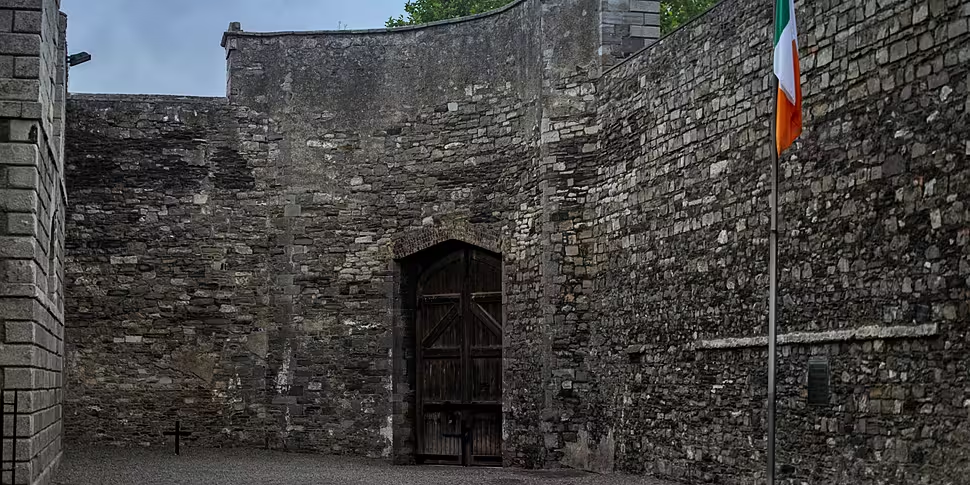The centenary of the execution of four young rebels by the Irish Free State is being marked in Kilmainham Gaol.
John Gaffney, James Fisher, Peter Cassidy and Richard Twohig were all executed on 17th November 1922 as the Free State sought to bring an end to the bloody Civil War.
The anti-Treaty IRA was proving ruthlessly effective in its scorched earth tactics and the Cabinet concluded that executions would act as a powerful deterrent.
100 years on, Kilmainham Gaol has put together an exhibition, 'I am to die for Ireland: Civil War Executions in Kilmainham Gaol’, about the unlucky four who were first to be executed on the Free State’s orders.
“They were four young working-class men literally from the parish,” curator Brian Crowley told Moncrieff.
“They were all from around the James’ Street area.”
All four had been convicted of the illegal possession of revolvers and been sentenced to death.
Ranging in age between 18 and 21, one morning they were marched out against a wall in Kilmainham Gaol and shot by a firing squad.
Floral tributes left by the many descents of Peter Cassidy, James Fisher, John Gaffney and Richard Twohig who visited throughout the day to mark the centenary of their execution. Thanks also to our @opwireland colleagues who handcrafted the specially designed table to hold them. pic.twitter.com/KgWc9XtIIB
— KilmainhamGaolMuseum (@OPWKilmainham) November 17, 2022
“There had been a lot of talk about the fact that the Free State was going to start executing their enemies on the anti-Treaty side,” Mr Crowley continued.
“A comrade of theirs… he describes [in a letter] how they were having breakfast together and then the four men were taken away and he said the next he knew about it was reading about their execution in the evening papers that Friday.
“It all happened very, very quickly.
“None of their families were allowed to come and see them and say goodbye.”
Prior to their executions, they were allowed to write “absolutely heart-breaking” letters to their mothers.
“One in particular that always gets me is James Fisher’s because at that stage there’s almost nearly a tradition of last letters after 1916 and there’s kind of an attitude you’re supposed to adopt where they say they’re happy to die for Ireland and it is a great thing to be so prepared for your death.
“But James Fisher - and Peter Cassidy - they keep returning to ‘If only I could see you again’ or ‘If only you could have been here with me’ or ‘We could have said goodbye properly.’
“Essentially, in these letters what you see is a boy who wants his mother and that’s something that most people can relate to.”
In total, there were 81 state executions during the Civil War, in addition to a number of extrajudicial killings by Free State forces.
Main image: Kilmainham Gaol. Picture by: Alamy.com









